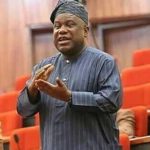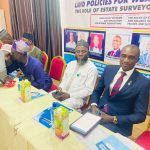Accessibility: A Critical Factor Political Office Holders Must Not Ignore – Kogi State as a Case Study
By Sunday Folorunsho Baiye
Kabba-Bunu Local Government Area.
In every democratic society, accessibility to political leaders is the foundation of trust, progress, and inclusive governance. Unfortunately, a growing challenge in Kogi State—and indeed across the nation—is the widening gap between elected officials and the very people who entrusted them with power.
Too often, once elected into office, many public office holders withdraw from the people, becoming unreachable except through a tight circle of appointed aides.
These aides, intentionally or unintentionally, become gatekeepers, controlling access, filtering messages, and sometimes blocking meaningful contributions that could help drive the administration’s mandate.
This situation is deeply troubling and raises serious concerns for our democracy.
1. Leadership Without Accessibility Is Leadership Without Feedback
When citizens cannot reach their leaders directly, constructive feedback dies. Many people with innovative ideas, policy solutions, development proposals, and practical insights are denied the chance to contribute.
Yet, these same individuals are often the ones living with the realities on the ground—realities that leaders must understand to succeed.
A government disconnected from its people becomes misguided, relying on second-hand information that is often diluted or manipulated.
2. Gatekeeping by Aides Is Becoming a Barrier to Progress
The practice where only appointed aides can grant access to public officials weakens governance. While aides are necessary for coordination, it becomes a problem when they:
* Decide who gets access based on personal interests
* Create bottlenecks that frustrate citizens
* Block developmental ideas from reaching the leader
* Turn public offices into private estates
This is not only undemocratic; it is counterproductive to the development we all seek.
3. Social Media Should Not Be the Only Avenue to Reach Elected Leaders
It is worrisome that many citizens now resort to social media just to draw the attention of their leaders. This trend signals a breakdown in the traditional and expected channels of communication between the governed and their representatives.
Leaders should not only be visible on social media—they should be reachable, accessible, and responsive to their people offline as well.
4. Public Office Is Not a Fortress—It Is a Public Trust
Holding political office is a sacred mandate not a license to disconnect from the electorate. Accessibility should be seen as:
* A duty
* A responsibility
* A moral obligation
* A democratic requirement
When leaders become inaccessible, they create resentment, weaken community trust, and hinder the very development they campaign to champion.
5. The Way Forward: A Call for Redress
For Kogi State—and indeed Nigeria—to progress, we must institutionalize open-door leadership that encourages citizens to participate in governance. This involves:
* Establishing clear communication channels between leaders and constituents
Creating public engagement days where citizens can meet leaders directly
Monitoring the activities of aides to prevent misuse of power
*Encouraging leaders to hold forums, town halls, and community dialogues
*Ensuring proposals and ideas from citizens receive fair attention
Accessibility breeds collaboration, and collaboration is the engine of development.
Conclusion
It is time for political office holders to return to the fundamentals of leadershipproximity, responsiveness, accessibility, and accountability
No leader can succeed in isolation. No administration can thrive when constructive voices are shut out. To build a stronger Kogi State, we must bridge the gap between government and the governed.
This is a call for reflection, correction, and redress.
Hon. Sunday Folorunsho Baiye
Kabba-Bunu Local Government Area












